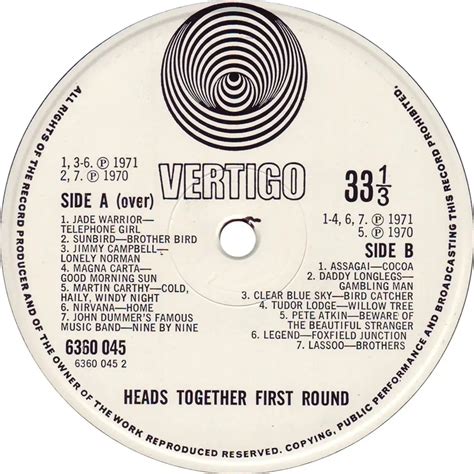The music industry has been shaped by numerous record labels throughout its history, each contributing uniquely to the development of various genres and the discovery of talented artists. Among these, certain classic record labels have left an indelible mark on the industry, fostering innovation, creativity, and excellence in music production. This article delves into the rich history of some of the most influential classic record labels, exploring their origins, achievements, and the lasting impact they have had on the music world.
Establishment of Iconic Labels

The early 20th century saw the establishment of several iconic record labels that would go on to play pivotal roles in shaping the music industry. One such label is RCA Records, founded in 1929, which became synonymous with quality and innovation, signing legendary artists like Elvis Presley and David Bowie. Another notable label from this era is Capitol Records, established in 1942, which was home to talents such as Frank Sinatra, The Beatles, and Katy Perry, among many others. These labels not only provided a platform for artists to showcase their talent but also invested heavily in technological advancements, improving recording quality and distribution networks.
The Rise of Specialty Labels
In the post-war period, the music landscape began to diversify with the emergence of specialty labels that focused on specific genres. Labels like Chess Records, founded in 1950, and Stax Records, established in 1957, became hubs for blues, soul, and R&B music, launching the careers of influential artists such as Chuck Berry, Bo Diddley, and Otis Redding. These specialty labels played a crucial role in promoting marginalized genres, contributing significantly to the cultural and musical heritage of the United States. Their success paved the way for future labels to cater to niche audiences, fostering a more diverse and vibrant music industry.
| Label | Year Founded | Notable Artists |
|---|---|---|
| RCA Records | 1929 | Elvis Presley, David Bowie |
| Capitol Records | 1942 | Frank Sinatra, The Beatles, Katy Perry |
| Chess Records | 1950 | Chuck Berry, Bo Diddley |
| Stax Records | 1957 | Otis Redding, Isaac Hayes |

Mainstream Success and Diversification

The 1960s and 1970s were pivotal decades for the music industry, with classic record labels achieving mainstream success and diversifying their rosters. Labels like Atlantic Records, founded in 1947, which had initially focused on jazz and R&B, expanded to include rock and pop acts, signing bands such as Led Zeppelin and The Rolling Stones. Similarly, Columbia Records, established in 1888, one of the oldest labels, continued to adapt, signing Bob Dylan, Bruce Springsteen, and Pink Floyd, among others. This period also saw the emergence of independent labels, which offered artists more creative control and paved the way for the punk and new wave movements of the late 1970s and early 1980s.
Challenges and Adaptations
The music industry faced significant challenges in the latter part of the 20th century, including the rise of home recording technology, file sharing, and shifts in consumer behavior. Classic record labels had to adapt to these changes, embracing digital distribution, and in some cases, rebranding or merging with other entities to remain viable. Despite these challenges, many classic labels continue to operate, albeit in evolved forms, maintaining their legacy while embracing new talent and technologies. The story of these labels serves as a testament to the resilience and adaptability of the music industry.
Key Points
- The establishment of iconic record labels in the early 20th century laid the groundwork for the modern music industry.
- Specialty labels played a crucial role in promoting marginalized genres and contributing to musical diversity.
- Mainstream success and diversification were key factors in the growth and evolution of classic record labels.
- The music industry's ability to adapt to technological, social, and economic changes has been crucial for its survival and continued relevance.
- Classic record labels continue to influence the music industry, with many still active today, albeit in evolved forms.
Legacy and Impact
The legacy of classic record labels is profound, with their contributions to music history still felt today. They have not only launched the careers of countless artists but have also been instrumental in shaping genres, influencing cultural movements, and pushing the boundaries of musical expression. The story of these labels is intertwined with the history of music itself, serving as a reminder of the power of innovation, creativity, and perseverance. As the music industry continues to evolve, the lessons learned from classic record labels will remain invaluable, guiding future generations of musicians, producers, and industry professionals.
What role did classic record labels play in shaping the music industry?
+Classic record labels were instrumental in discovering and promoting new talent, investing in technological advancements, and adapting to changing consumer behaviors and technological landscapes.
How did specialty labels contribute to musical diversity?
+Specialty labels focused on specific genres, such as blues, soul, and R&B, providing a platform for marginalized voices and contributing significantly to the cultural and musical heritage of the United States.
What challenges did the music industry face in the late 20th century, and how did classic labels adapt?
+The industry faced challenges such as the rise of home recording technology and file sharing. Classic labels adapted by embracing digital distribution and, in some cases, rebranding or merging with other entities to remain viable.
Meta Description: Explore the rich history of classic record labels, their contributions to music genres, and their enduring impact on the industry, from iconic labels like RCA and Capitol to specialty labels that promoted marginalized voices.


